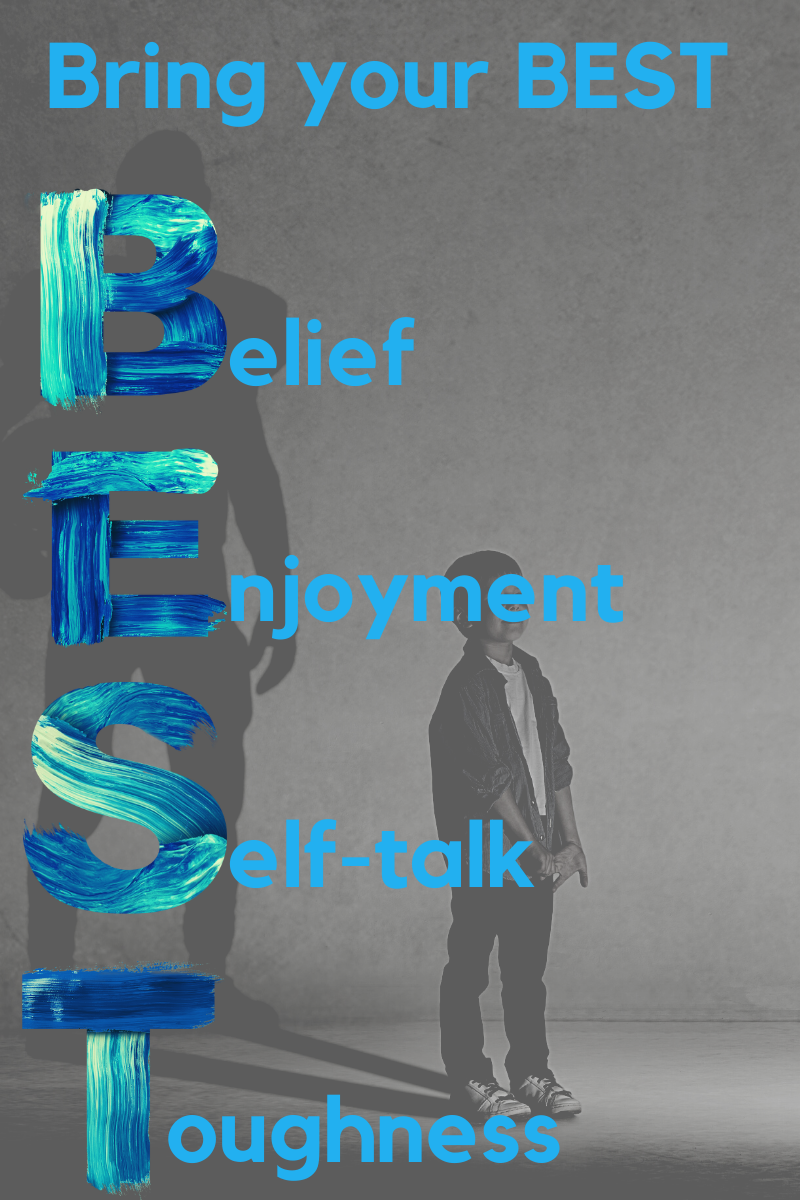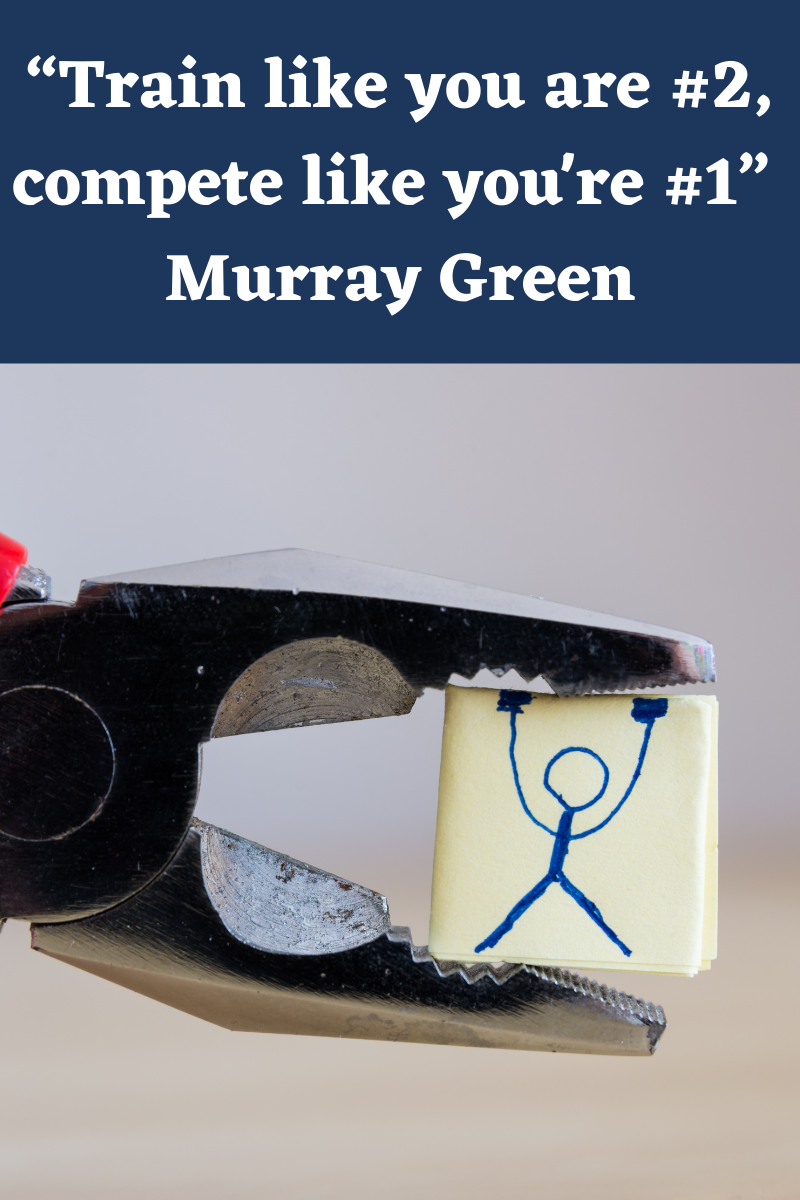
How to teach like a champion…even in the hardest of times.
Pandemic teaching moved the world of education from “unprecedented times” to “expect the unexpected.” But in reality, teaching has always been tough. When the going gets tough in the classroom, it can be tempting to focus on all of the adversity. Focusing on these challenges can easily overwhelm even the most dedicated professional, but champions don’t back down.
In his book The Champion’s Mind, Jim Afremow discusses 4 ways to reframe your thinking during particularly high-stress and high-stakes situations. To really teach like a champion, you need more than a set of skills. You need a champion’s mind.
Here’s an overview of The Champion’s Mind from The Productivity Game:
Champions bring their best selves.

Your best self does not have to be perfect.
Afremow uses the acronym BEST to describe what it means to bring your best self.
Below are explanations of the four characteristics of The Champion’s Mind, according to Afremow.
Try each of the accompanying strategies to get started being your BEST today.
Belief
For champions, success seems like destiny. To achieve this feeling yourself, trust your training.
Champions don’t doubt their ability because they believe they have worked harder than anyone else. Even if it doesn’t feel like it, trust in your training during hard times. Remind yourself that you are prepared to teach any student in any classroom, and then stand firm on that belief.
Afremow cites this well-known quote:
“Train like you are #2, compete like you are #1” Murray Green.
Strategy: Believing in your training takes work. One great strategy is to record video of yourself teaching and watch it with the specific purpose of finding evidence of things you are trained to do. As you watch yourself teach, ask yourself this: “what do I see in this video that confirms my training as a professional educator.” Fight the urge to look for flaws. Teachers by nature will see the bad and then not be able to see evidence of success. Looking for the GOOD will lead to seeing your training come out. Completing reflections like this will give you the confidence to walk into the classroom with the belief that success is the only possibility.

Enjoyment
Building on a belief in your success allows you to enjoy even the hardest of situations. The Champion’s Mind finds enjoyment by practicing:
Gratitude- Remind yourself on a regular basis, “I’m so lucky to be here.” Actively look for things to be grateful for in your day.
Humor- Afremow points out that people in high-stress professions (fire-fighters, military personnel) are also widely known for their humor. “Steady your nerves by using a dose of humor,” to lighten the mood and motivate you to keep going.
Strategy: Use the strategy above to reflect on your classroom with a focus on gratitude. But don’t just stop with reflection. Sharing these gratitude-reflections with colleagues helps build a collective feeling of gratitude on your team.
Self-Talk
Afremow cites the book Change Your Brain, Change Your Life, by Neuroscientist Daniel Amen. In the book, Amen explains the idea of ANTS, or automatic negative thoughts. ANTs are your brain’s way of protecting itself. ANTs don’t play to win, they play not to lose. ANTs think about the things that might go wrong. While ANTs serve a purpose, Amen states they will eat away at your performance.
So how do you eradicate these ANTs?
The key is to trust your training, and use self talk to focus on the present.
Self talk is positive, simple, and focused on the now.
Don’t worry about the future, focus on winning right now. Use a short mantra to remind yourself to stay focused on the present, and to stay focused on your training.
Strategy: Set goals that focus on the here and now, not on long-term outcomes. Then use evidence from your classroom to remind yourself how you achieved them. You Can use Sibme’s Goal Setting Module to easily create and track these goals on an ongoing basis.

Toughness
Toughness isn’t clenching your teeth and telling yourself to try harder.
Toughness is the ability to remain positive and proactive in the most adverse of circumstances.
Setbacks are chances to learn
When evaluating your goals, look for ways to evaluate your struggles as learning opportunities, not barriers to success. Then use the things you learn from these challenges to set new action steps that will get you closer to achieving your goal.
Strategy- Reflecting on evidence and setting goals that connect to your work allow you to look at difficult times through with a tough eye. When you come to a piece of evidence that suggests a failure or set-back, take the time to reinforce your belief in your own training and ask yourself what skills you have to help move forward. If you need help, don’t be afraid to make your evidence public with a trusted colleague, asking for ways to get over hurdles on the path to success.

Anyone can be a champion if they are willing to pursue The Champion’s Mind. In the book Afremow highlights many athletes who overcame tremendous obstacles to achieve their goals. While many cite their toughness and grit as the root of their success, each athlete believed in their training, enjoyed their experience, and used some kind of self talk to generate a focus on the moment.
Start with the belief that you are prepared for this challenge, even if it doesn’t feel like it. Trust in your experience and try to find opportunities to enjoy your current situation. And, most importantly, set goals and collect evidence of your success to motivate yourself. This will help you bring your BEST self to the classroom, which is what your students deserve.

